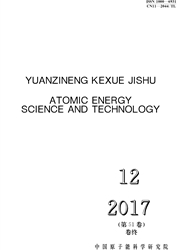

 中文摘要:
中文摘要:
研究了咖啡因对碳离子束辐射的增敏效应,并观察在该过程中人乳腺癌易感基因BRCA1表达的变化。碳离子束联合咖啡因处理人乳腺癌细胞MCF-7后,利用实时细胞检测仪观察细胞生长、流式细胞术检测细胞周期分布变化、real-time PCR检测BRCA1mRNA水平、Western blot检测BRCA1蛋白水平及其磷酸化水平。结果显示:咖啡因处理导致细胞生长明显受到抑制;咖啡因废除了辐射诱导的G2期阻滞,抑制了BRCA1mRNA和蛋白表达水平,同时特异性抑制了BRCA1的丝氨酸1524位点的磷酸化作用。这些结果表明咖啡因抑制了BRCA1蛋白和其磷酸化表达水平。
 英文摘要:
英文摘要:
The sensitizing effect of caffeine to carbon ion radiation was investigated and the change of BRCA1 expression was observed.The MCF-7 breast carcinoma cells were exposed to carbon ion beams with or without caffeine.The cell survival was automatically monitored by RT-CES system.Cell cycle distribution was assessed by flow cytometry.The levels of BRCA1 mRNA were analyzed by real-time RT-PCR.The expression of BRCA1 protein and its phosphorylation were examined by Western blot.The results show that caffeine increases the sensitivity of MCF-7 cells to carbon ion radiation,and abrogates the radiation-induced G2 arrest.Caffeine inhibits radiation-induced BRCA1 expression both at mRNA and protein level.At the same time,caffeine specifically abolishes BRCA1 phosphorylation of Ser-1524.The data implicate that caffeine inhibits the expression of BRCA1 protein and its phosphorylation.
 同期刊论文项目
同期刊论文项目
 同项目期刊论文
同项目期刊论文
 Potential Mechanisms Involved in Resistant Phenotype of MCF-7 Breast Carcinoma Cells to Ionizing Rad
Potential Mechanisms Involved in Resistant Phenotype of MCF-7 Breast Carcinoma Cells to Ionizing Rad EARLY EFFECTS OF LOW DOSE C-12(6+) ION OR X-RAY IRRADIATION ON PERIPHERAL BLOOD LYMPHOCYTES OF PATIE
EARLY EFFECTS OF LOW DOSE C-12(6+) ION OR X-RAY IRRADIATION ON PERIPHERAL BLOOD LYMPHOCYTES OF PATIE High-efficiency transfer and expression of AdCMV-p53 in human cervix adenocarcinoma cells induced by
High-efficiency transfer and expression of AdCMV-p53 in human cervix adenocarcinoma cells induced by Protective effects of melatonin against C-12(6+) beam irradiation-induced oxidative stress and DNA i
Protective effects of melatonin against C-12(6+) beam irradiation-induced oxidative stress and DNA i 期刊信息
期刊信息
